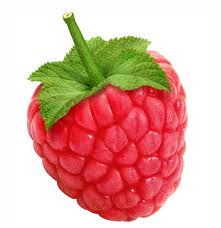 Raspberries, native to Turkey, are an exquisite fruit which grows on bushes. The ancient Greeks were the first global culture to promote its use and medicinal qualities, using the fruit to solve gastrointestinal and throat illnesses. The Greeks also used raspberries for eye ointments and as a dye for clothes.
Raspberries, native to Turkey, are an exquisite fruit which grows on bushes. The ancient Greeks were the first global culture to promote its use and medicinal qualities, using the fruit to solve gastrointestinal and throat illnesses. The Greeks also used raspberries for eye ointments and as a dye for clothes.
The Romans quickly began growing raspberries and were responsible for sharing this delicious fruit with the remainder of Europe. Easily grown in gardens during the summer months, Europeans started to use this fruit as a food in addition to a medicine. Containing a significant amount of vitamin C and folate, raspberries are also known for their high mineral content. There are over 200 varieties of raspberries available today, ranging in color from gold, purple, black and white. Raspberries can be an expensive fruit since they are so delicate and difficult to pick. With a limited shelf life, dried raspberries tend to be equally as popular as their fresh counterpart.
Key Nutrients
Raspberries are a great source of vitamin C, manganese and B vitamins such as B2 and B6. Raspberries are also a great source of dietary fiber and are low in both saturated and unsaturated fat.
Health Benefits
Vitamin C – Regular consumption of foods rich in vitamin C helps the body develop resistance against infections and scavenges harmful, pro-inflammatory free radicals. Vitamin C also helps to prevent respiratory problems such as asthma and lung cancer. Vitamin C has been shown to lower blood pressure, and therefore lessen the probability of hypertension.
Vitamin B1 – Thiamine is an important vitamin since it breaks down sugars in the body. Thiamine also helps to support nerve and heart health.
Vitamin B6 – Vitamin B6 helps to keep your immune system in good working order. It aids in the breakdown of fats, carbohydrates and amino acids while helping to maintain the health of lymph nodes. Additionally, vitamin B6 helps to regulate blood glucose levels.
Vitamin B9 – Folate is an important vitamin for liver function.
Vitamin B12 – Vitamin B12, or folic acid, helps to preserve neurological function and DNA synthesis. It also plays a key role in the health of red blood cells. The nervous system relies on vitamin B12 for proper function as well.
Dietary Fiber – Dietary Fiber stimulates digestion and peristalsis, helping to relieve indigestion and constipation problems.
Manganese – Manganese aids in the metabolism of food as well as promotes normal functioning of the nervous system. Manganese works as an antioxidant to help prevent cancer and heart disease.
Season
Raspberries are in season during mid-Summer. Since commercial varieties exist, you can find this fruit year round in your supermarket.
Nutrition Information
Per 1 cup (123 grams):
Calories (cKal): 64
Protein (grams): 1.48
Total Fat (grams): .8
Carbohydrates (grams): 14.69
Fiber (grams): 8
Buying and Storing
When buying raspberries, make sure the fruit is firm to the touch and free of blemishes. When storing at home, make sure to store in the refrigerator for up to four days.
Best Way to Add to Diet
Raspberries go well with cottage cheese, yogurt or your favorite breakfast cereal. Add a few raspberries to a salad for a sweet and sour taste. Finally, raspberries make a great raw garniture to any dessert plate.
Raspberry Recipe

 Not Sure What Healthy Foods To Eat?
Not Sure What Healthy Foods To Eat? This week we take a look at one of my favorite healthy foods...the mighty Avocado.
This week we take a look at one of my favorite healthy foods...the mighty Avocado.
No comments yet.